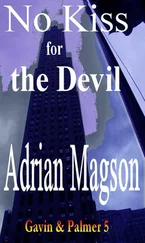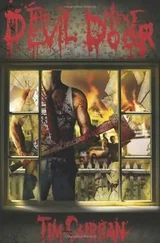I saw the Asian woman once more, smoking with her friends in the park several weeks later, and to my amazement she nodded to me and came over, interrupted her companions’ conversation.
“Are you alright?” she asked me peremptorily. “How are you doing?”
I nodded shyly back and told her that I was fine, thank you, and how was she?
She nodded and walked away.
I never saw the drunken, violent man again.
There were people I could probably have gone to to understand more about what had happened to Mrs. Miller. There was a story that I could chase, if I wanted to. People I had never seen before came to my house and spoke quietly to my mother, and looked at me with what I suppose was pity or concern. I could have asked them. But I was thinking more and more about my own life. I didn’t want to know Mrs. Miller’s details.
I went back to the yellow house once, nearly a year after that awful morning. It was winter. I remembered the last time I spoke to Mrs. Miller and I felt so much older it was almost giddying. It seemed such a vastly long time ago.
I crept up to the house one evening, trying the keys I still had, which to my surprise worked. The hallway was freezing, dark, and stinking more strongly than ever. I hesitated, then pushed open Mrs. Miller’s door.
It opened easily, without a sound. The occasional muffled noise from the street seemed so distant it was like a memory. I entered.
She had covered the windows very carefully, and still no light made its way through from outside. It was extremely dark. I waited until I could see better in the ambient glow from the outside hallway.
I was alone.
My old coat and jumper lay spread-eagled in the corner of the room. I shivered to see them, went over, and fingered them softly. They were damp and mildewing, covered in wet dust.
The white paint was crumbling off the wall in scabs. It looked as if it had been left untended for several years. I could not believe the extent of the decay.
I turned slowly around and gazed at each wall in turn. I took in the chaotic, intricate patterns of crumbling paint and damp plaster. They looked like maps, like a rocky landscape.
I looked for a long time at the wall farthest from my jacket. I was very cold. After a long time I saw a shape in the ruined paint. I moved closer with a dumb curiosity far stronger than any fear.
In the crumbling texture of the wall was a spreading anatomy of cracks that-seen from a certain angle, caught just right in the scraps of light-looked in outline something like a woman. As I stared at it, it took shape, and I stopped noticing the extraneous lines, and focused without effort or decision on the relevant ones. I saw a woman looking out at me.
I could make out the suggestion of her face. The patch of rot that constituted it made it look as if she was screaming.
One of her arms was flung back away from her body, which seemed to strain against it, as if she was being pulled away by her hand, and was fighting to escape, and was failing. At the end of her crack-arm, in the space where her captor would be, the paint had fallen away in a great slab, uncovering a huge patch of wet, stained, textured cement.
And in that dark infinity of markings, I could make out any shape I wanted.
The Devil Disinvests by Scott Bradfield
“I don’t think of it as laying off workers,” the Devil told his Chief Executive Officer, Punky Wilkenfeld, a large round man with bloodshot eyes and wobbly knees. “I think of it as downsizing to a more user-friendly mode of production. I guess what I’m saying, Punky, is that we can’t spend all eternity thinking about nothing more important than the bottom line. Maybe it’s finally time to kick back, reflect on our achievements, and start enjoying some of that well-deserved R &R we’ve promised ourselves for so long.”
As always, the Devil tried to be reasonable. But this didn’t prevent his long-devoted subordinate from weeping copiously into his worsted vest.
“What will I do?” Punky asked himself over and over again. “Where will I go? All this time I thought you loved me because I was really, really evil. Now I realize you only kept me around because, oh God. For you it was just, just, it was just business.”
The Devil folded his long forked tail into his belt and checked himself out in the wall-sized vanity mirror behind his desk. He was wearing a snappy handmade suit by Vuiton, gleaming Cordovan leather shoes, and prescription Ray-Bans. The Devil had long been aware that it wasn’t enough to be good at what you did. In order for people to know it, you had to look good, as well.
Roger “Punky” Wilkenfeld lay drooped over the edge of the Devil’s desk like a very old gardenia. The Devil couldn’t help himself. He really loved this guy.
“What can I tell you, Roger?” the Devil said, as gently as he could. “Eventually it comes time for everybody to move on, and so in this particular instance, I’ll blaze the trail, and leave you and the boys to pack things up in your own good time. Just be sure to lock up when you leave.”
The Devil went to California. He rented a beachfront cottage on the Central Coast, sold off his various penthouses and Tuscan villas, and settled into the reflective life as easily as an anemone in a tide pool. Every day he walked to the local grocery for fresh fruits and vegetables, took long strolls into the dry amber hills, or rented one of the Nouvelle Vague classics he’d always meant to watch from Blockbuster. He disdained malls, televised sports, and corporate-owned franchise restaurants. He tore up his credit cards, stopped worrying about the bottom line, and never once opened his mail.
In his heyday, the Devil had enjoyed the most exotic pleasures that could be devised by an infinite array of saucy, fun-loving girls named Delilah. But until he met Melanie, he had never actually known true love.
“I guess it’s because love takes time,” the Devil reflected, on the night they first slept together on the beach. “And time has never been something I’ve had too much of. Bartering for souls, keeping the penitents in agony, stoking the infernos of unutterable suffering and so forth. And then, as if that’s not enough, having to deal with all the endless constant whining. Oh please, Master, please take my soul, please grant me unlimited wealth and fame and eternal youth and sex with any gal in the office, I’ll do anything you ask, please please. When a guy’s in the damnation game, he never gets a moment’s rest. If I’d met you five years ago, Mel? I don’t think I’d have stopped working long enough to realize what a wonderful, giving person you really are. But I’ve got the time now, baby. Come here a sec. I’ve definitely got lots of time for you now.”
They moved in together. They had children-a girl and a boy. They shopped at the Health Food Co-Op, campaigned for animal rights, and installed an energy efficient Aga in the kitchen. They even canceled the lease on the Devil’s Volvo, and transported themselves everywhere on matching ten-speed racing bikes. These turned out to be the most wonderful and relaxing days the Devil had ever known.
Then, one afternoon when the Devil was sorting recyclable materials into their appropriate plastic bins, he received a surprise visitor from his past. Melanie had just taken the kids to Montessori. The Devil had been looking forward all day to catching up with his chores.
“How they hanging, big boy? I guess I imagined all sorts of comeuppances for a useless old fart like yourself, but certainly never this. Wasting your once-awesome days digging through garbage. Cleaning the windows and mowing the lawn.”
When the Devil looked up, he saw Punky Wilkenfeld climbing out of a two-door Corvette. Clad in one of the Devil’s old suits, he looked slightly out of place amidst so much expensive retailoring. Some guys know how to hang clothes, the Devil thought. And some guys just don’t.
Читать дальше












